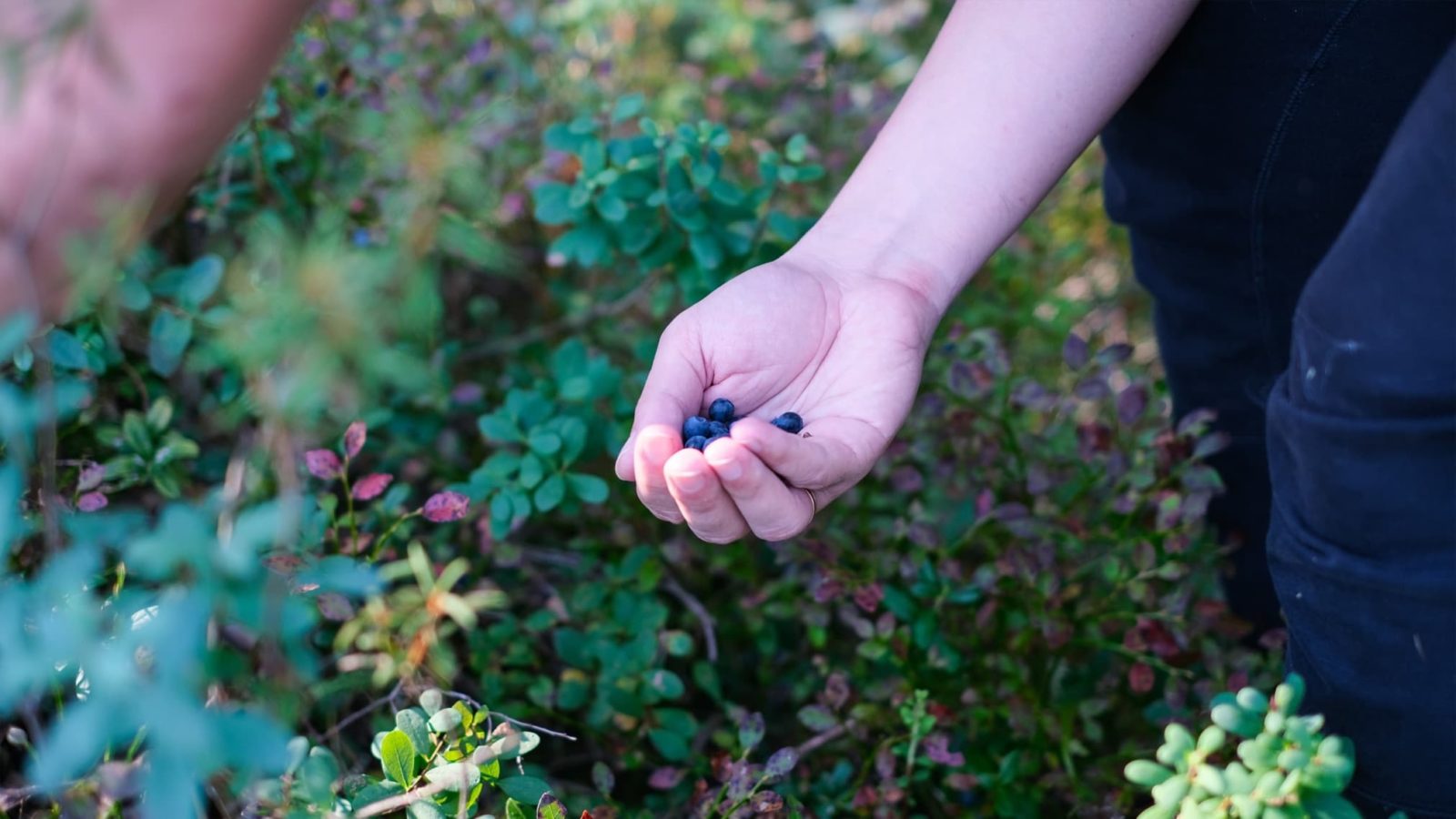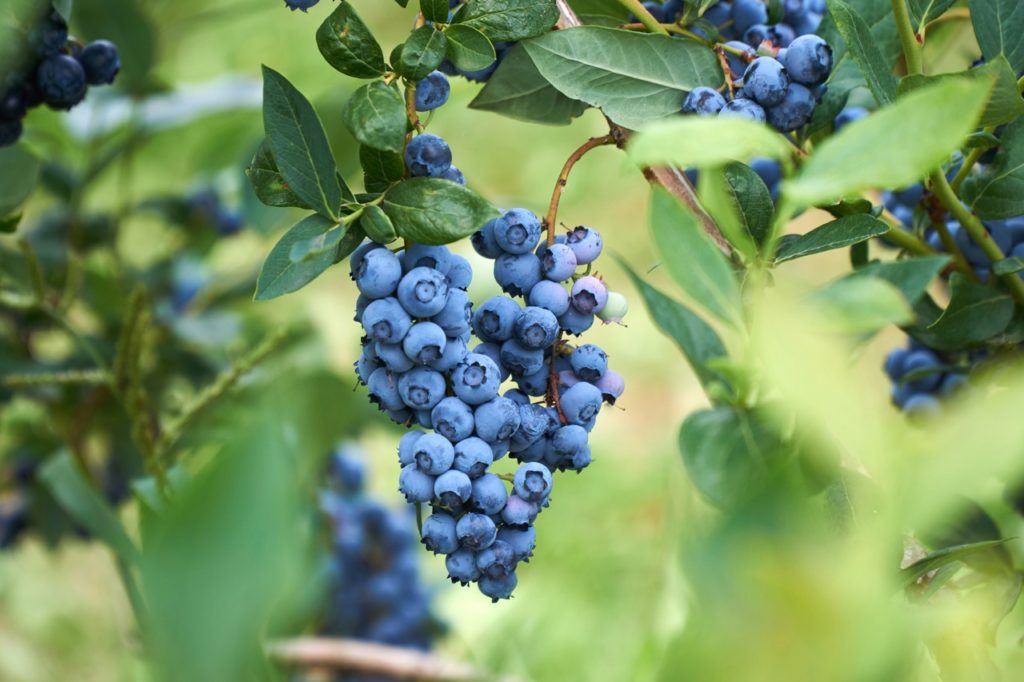Here’s How To Make Sure You Only Harvest Your Blueberries When They’re Ripe

FRUIT > BLUEBERRY > HARVESTING
Reviewed By COLIN SKELLY

Colin is a Horticulturist and Horticultural Consultant with experience in a range of practical and managerial roles across heritage, commercial and public horticulture. He holds the Royal Horticultural Society’s Master of Horticulture award and has a particular interest in horticultural ecology and naturalistic planting for habitat and climate resilience.
IN THIS GUIDE
BLUEBERRY GUIDES
Container Growing
Cuttings Propagation
Feeding
Harvesting
Pruning
Repotting
Varieties
Winter Care
Blueberry harvesting season begins in early June and ends in late September.
Your specific harvesting period will depend to a great extent on your cultivar and to a lesser extent on your region and on the climate and weather during that particular season.
In this guide we explain the harvesting process in more detail.
| Difficulty | Easy |
| Equipment Required | Gloves and goggles (both optional) |
| When To Harvest | June-September |
Which Fruit Should Be Harvested?
Blueberries go through several stages as they ripen on the bush.
Immature blueberries have a pinkish flush and are small and hard.
Unripe berries will be pinkish-purple or reddish-purple.

Ripe blueberries will be bigger and will present a full or swollen appearance, and will ‘give’ a bit under gentle finger pressure.
They will have that familiar dull, dusky, blotchy, deep blue tone.
It is these berries that you should pick.
How To Harvest Blueberries
As stated above, the particular month(s) that you can harvest your blueberries depend on your cultivar and a couple of other factors that are not quite as important.
The harvesting itself is an ongoing and periodic task during the season, as you will pick blueberries over a span of about 4 weeks for any given cultivar.

Try to pick the berries about every 3 days, the idea being to pick those berries that are just ripe, leaving the rest to mature but also not letting the fruit get over-ripe.
Gently hold a ripe blueberry (or even a ripe cluster) between your forefinger and thumb and pluck it off with a twisting motion.
If it does not come off the branch, it is probably not ripe.

That said, some cultivars hold on to their berries a little more than others.
Picking blueberries will be easier if you grasp and steady the branch with your free hand.
Post-Harvesting Tips
Do not wash all your blueberries after picking them.
When you wash berries (or any skinless fruit) the process of ripening accelerates, so washed fruit will quickly spoil and will not keep well.1Thomson, J. R. (2016, July 13). Why You Should Never Wash Your Fruit Before Refrigerating It. HuffPost UK. Retrieved March 13, 2023, from https://www.huffingtonpost.co.uk/entry/storing-summer-berries_n_5783934de4b0344d514ff10e
Wash only before eating the berries.
Blueberries are luscious fresh off the bush, and are equally luscious in preserves and compotes, and also in baked treats.

Bear in mind that blueberries will keep in the freezer for a year, so you can certainly enjoy them until the next harvesting season comes around.
“Freezing is a great way to preserve your soft fruit to enjoy during the winter months,” shares Colin Skelly, a Professional Gardener and Consultant.
“I try to avoid the temptation of eating all of the fruit as I pick it from the bush and try to save about half for freezing for future use.”
Remove any fruit that is dinged or soft and put small quantities – preferably in a single layer – in an airtight bag.
Put a few such bags in a lightweight plastic box and put that in the freezer.
References
- 1Thomson, J. R. (2016, July 13). Why You Should Never Wash Your Fruit Before Refrigerating It. HuffPost UK. Retrieved March 13, 2023, from https://www.huffingtonpost.co.uk/entry/storing-summer-berries_n_5783934de4b0344d514ff10e

